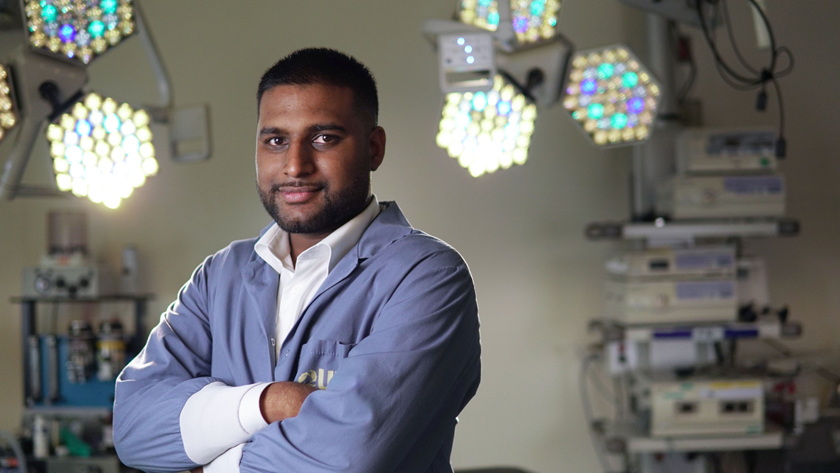
Researchers at the Toronto General Hospital Research Institute (TGHRI) and Ajmera Transplant Centre show that storing donor lungs at 10°C—rather than the current standard of 4°C—can prolong their viability.
Transplants are limited by the length of time that donor organs can be kept healthy outside the body. Current preservation approaches involve keeping donor lungs at 4°C in an ice cooler and can keep the organs viable for up to 8 hours, after which they are considered high risk for transplantation.
“We still see a critical shortage of organs and people dying on the waitlist because there are not enough lungs to be transplanted,” says Dr. Marcelo Cypel, a Senior Scientist at TGHRI, Surgical Director of the Ajmera Transplant Centre and senior author of the study. “Prolonging organ preservation would enable donor organs to come from greater distances, increasing the number of organs available for transplant and overcoming hurdles related to transplant logistics.”
Previous research from Dr. Cypel’s lab has revealed that donor lungs that are stored at 10° show signs of improved lung function compared to lungs stored at lower temperatures. To determine how these results translate to lung health in a clinical setting, Dr. Cypel’s team conducted a clinical trial assessing the effects of 10°C storage on lung viability and patient outcomes.
The multisite trial took place over 18 months at UHN’s Toronto General Hospital, the Medical University of Vienna and Hospital Universitario Puerta de Hierro-Majadahonda in Madrid.
At each site, lungs that met the criteria for transplantation were retrieved, transported and immediately transferred to a 10°C temperature-controlled incubator for an average of 12-14 hours before transplantation.
Published in New England Journal of Medicine Evidence, the findings indicate that donor lungs that were stored at 10°C remained viable up to four times longer than those stored at 4°C.
Despite significantly longer preservation times, lungs that were stored at 10°C did not have a higher incidence of severe dysfunction following transplantation. There were also no differences in one-year patient survival rates, or the length of patient stays in the intensive care unit or hospital.
These findings indicate that lung preservation at 10°C is safe and could improve transplantation logistics.
“Improving the preservation of donor organs outside the body has several advantages. Clinicians can transport the organs over longer distances, overcoming geographic constraints, and make transplantation a planned, rather than urgent, procedure,” says Dr. Aadil Ali, an Adjunct Scientist at TGHRI and the Ajmera Transplant Centre and the first author of the study.

Senior author of the study, Dr. Marcelo Cypel is a TGHRI Senior Scientist and the Surgical Director of the Ajmera Transplant Centre at UHN.
These changes in practice come at a critical time when hospital resources are stretched thin and there are increased surgical backlogs due to the COVID-19 pandemic.
“Extending organ preservation time can also improve outcomes for transplant patients by giving clinicians more time to optimize immunologic matching between donors and recipients,” adds Dr. Ali.
According to Dr. Cypel, the results of this trial could yield a paradigm shift in the practice of lung transplantation worldwide. “I have no doubt that this will become the gold standard practice of lung preservation for the foreseeable future.”
To learn more, click here for a video of Drs. Cypel and Ali discussing the foundational research that led to this clinical trial.
The work was supported by the UHN Foundation. Dr. Marcelo Cypel is a TGHRI Senior Scientist, Surgical Director of the Ajmera Transplant Centre and a staff thoracic surgeon at UHN. He is also a Professor of Surgery in the Division of Thoracic Surgery and held a Tier 1 Canada Research Chair in Lung Transplantation at the University of Toronto.
Ali A, Hoetzenecker K, de la Cruz JLC, Schwarz S, Barturen MG, Tomlinson G, Yeung J, Donahoe L, Yasufuku K, Pierre A, de Perrot M, Waddell TK, Keshavjee S, Cypel M. Extension of Cold Static Donor Lung Preservation at 10°C. NEJM Evidence. 2023 April 20. doi: 10.1056/EVIDoa2300008.




